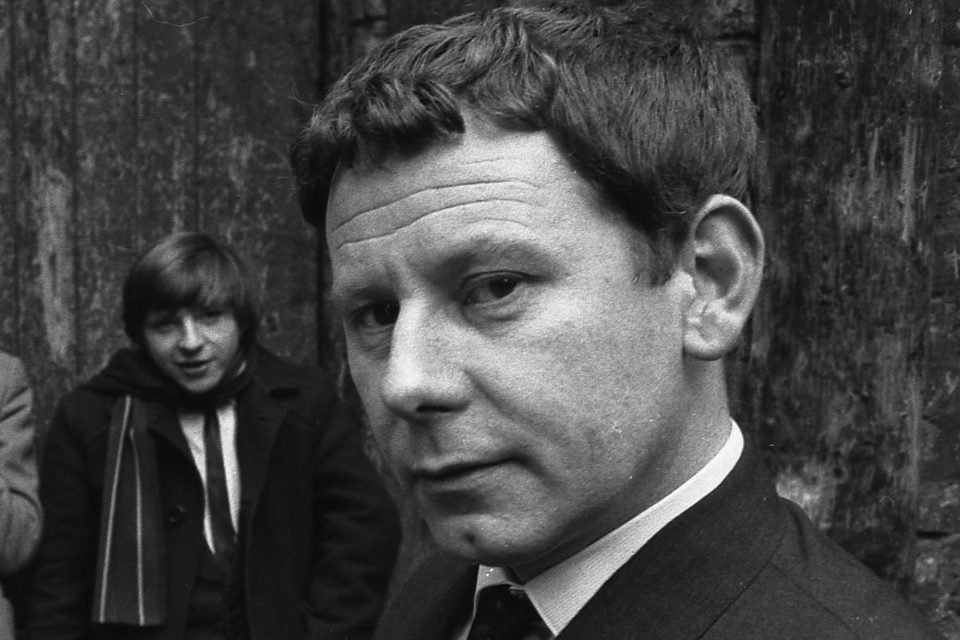Born Frederick James Wooler on 19 January 1926, Bob Wooler was the DJ at Liverpool’s Cavern Club, and was the man who introduced The Beatles to their manager Brian Epstein.
While living in the Garston area of Liverpool in the 1950s, Wooler became manager of The Kingstrums, a local skiffle group and fellow workers at the Garston docks. He entered them into a talent contest at the Gateacre Labour Club, but they were beaten by The Mars Bars, who later became Gerry and the Pacemakers.
Wooler wrote several songs for The Kingstrums. After the group split up in 1958, and Wooler decided his future lay as a disc jockey and compère for local events, rather than in music management. His encyclopaedic knowledge of local music put him in demand among local concert promoters.
He met club owner Allan Williams, a promoter who ran local venues the Jacaranda and the Blue Angel. Williams offered Wooler a job at his new Top Ten club; in response, Wooler gave up his job as a clerk at the railway dock office in Garston. Williams hoped that The Beatles would become the club’s house band, but it burned down six days after opening on 1 December 1960.
Wooler began working for a promoter, Brian Kelly, who ran regular dances at Litherland Town Hall, Lathom Hall and Aintree Institute. By this time The Beatles had returned from their first Hamburg show; at Williams’ Jacaranda coffee bar they complained to Wooler about the lack of musical employment.
They were moaning to me about how little was happening. I’d never heard them before, but I said I’d try to get Kelly to put them on. In fact, I rang him up from the Jacaranda. I asked for eight pounds for them. Kelly offered four; we settled on six.
Shout!, Philip Norman
The event, which took place at Litherland Town Hall on 27 December 1960, billed the group as ‘Direct from Hamburg’. It was on this night that The Beatles met Neil Aspinall, who would later become their road manager and trusted friend.
We got a gig. Allan Williams put us in touch with a guy called Bob Wooler, a compère on the dance-hall circuit. He tried us out one night and put an ad in the paper: ‘Direct from Hamburg: The Beatles’. And we probably looked German, too; very different from all the other groups, with our leather jackets. We looked funny and we played differently. We went down a bomb.
Wooler secured The Beatles a number of other gigs with Brian Kelly, and helped spread their name around Liverpool.
As a disc jockey, he was an unlikely figure with his round face, his earnest politeness and devotion to word-play and puns. He loved to draft elaborate posters and handbills in which, for example, the initial letters of Litherland Town Hall served additionally to spell ‘Lively Time Here’, and all the bus routes to the hall would be microscopically detailed. ‘Jive Fans!’ a Wooler handbill would say, ”This is It!’ In neat capital letters., he would draft the evening’s running order, murmuring to himself such cautionary slogans as ‘Horses for courses. Menus for venues.’ Somehow, in the shabby jive halls, he maintained the gravitas of a Roman senator, wagging his large forefinger as he strove to impress on beer-crazed 17-year-olds that punctuality and politeness were the primary virtues in life. Yet his voice, through the microphone, was as rich and relaxed as the best to be heard on Radio Luxembourg.
Bob Wooler became the Cavern Club’s compère one lunchtime in 1961, after being persuaded to speak into the stage microphone following a performance.
I did it just as the people were going out. I said, ‘Remember all you cave-dwellers, the Cavern is the best of cellars.’ I’d prepared that little pun on Peter Sellers’ album The Best Of Sellers. [Cavern owner] Ray McFall came across. I thought I was going to get a lecture; but instead he offered me the job of compèring the lunchtime sessions.
Shout!, Philip Norman
Wooler persuaded McFall to allow The Beatles to perform at the Cavern. Their first show was in January 1961, and their popularity ensured a succession of repeat performances.
The Cavern DJ booth was a small room to the left of the stage, which doubled as a dressing room for the performing acts. He took great delight in working the audiences into heightened states of excitement with his announcements.
Wooler also wrote a regular column for Bill Harry’s Mersey Beat music newspaper. His first article appeared in the 31 August 1961 issue, and spoke enthusiastically about The Beatles.
Seemingly unambitious yet fluctuating between the self-assured and the vulnerable. Truly a phenomenon – and also a predicament to promoters. Such are the fantastic Beatles. I don’t think anything like them will happen again.
Mersey Beat


The other group that appeared at litherland town hall with the Beatles on 27th December 1960 was Duke Duval
Bob’s voice was taken from the LP “Live At The Cavern”. It actually said “we’ve got the hi-fi high and the lights down low, so here we go with the Big 3 show” as he was introducing them instead of The Beatles. Afterwards, in documentaries it was edited to introduce The Beatles “Some Other Guy”. The actual introduction there was : “The Beatles sing “Some Other Guy”. So now you know 🙂
If Wooler was born in 1926, he wasn’t a teenager in the 1950s. I don’t think he was nearly 20 years older than the Beatles. And the Beatles didn’t meet Neil Aspinall in 1960 at Litherland. Paul, George and Neil all went to Liverpool Institute at the same time.
All the sources I can find say Wooler was born in ’26. So it appears he was that much older.
Probably a better way to put it would be the Beatles re-acquainted themselves with Aspinall at Litherland.
Bob became the Cavern DJ in October 1960. His ‘Cave-dweller’ announcement occurred either on 19th or 26th October 1960